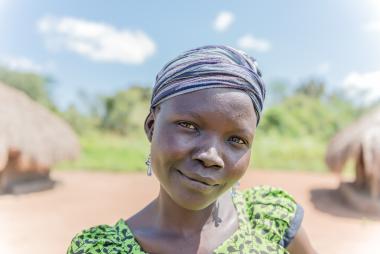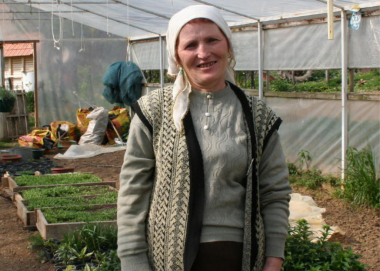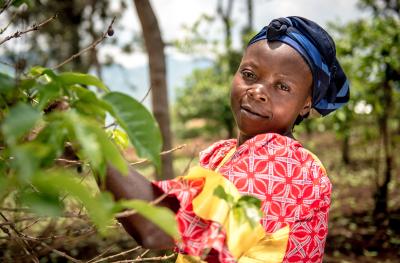Barriers to social, cultural, and economic equality are even more extreme for ultra-poor women in conflict-affected countries.
The UN International Equal Pay Day on September 18th underscores the inequity in the gender pay gap and the systemic inequalities it is rooted in. To celebrate, below are some inspiring stories of women using their economic skills to lift themselves, and their families, out of poverty.
Our Stronger Women, Stronger Nations program is designed to help women realize their own power. One way of embracing their power is by learning a vocational trade and earning their own money. Whether it’s breadmaking or poultry raising, women build skills that are marketable in their communities, so they can start small ventures and begin earning an income. Graduates of our program report daily personal earnings of $1.43 after graduation, compared to $0.77 at enrollment.
The three program participants we are highlighting unleashed their power through vocational training. After graduating from our Stronger Women, Stronger Nations program, they control their own finances, lead their own businesses, and manage their own employees creating a ripple effect throughout their families and communities.
1. Unis, South Sudan
Unis* wanted to enroll in the Women for Women program after she heard an announcement made in church. She wanted to learn how to calculate profits and losses, and how to better manage her business. The trainings have helped Unis achieve both of these goals.
“Now I can calculate my profits, and follow all the money for goods taken on credit. I saved $200 with a goal of building a permanent house, but one of my sons damaged someone’s motorcycle. I had to use the money to repair it for the owner, but I am still confident that I will save more and build a better house for myself and my family.”
Read her full story >>
2. Meet Hivi, Iraq
In our programming, Hivi* learned the value of women working to be financially independent during her training. She has started her own business selling bread and working as a cleaner, washing and cleaning houses near her home. She has used the money that she generated for her children and puts some into savings.
"I was motivated by my WfWI program to start establishing my business at home,” Hivi said. “I even taught my children about savings, and I continue to teach them to understand the need to buy items since I have learned so many saving skills.”
Read her full story >>
3. Meet Valbona, Kosovo
After learning business skills while enrolled in our program, Valbona* now employs six of her family members and sells the cucumbers and peppers they grow in local markets. Inspired by her success, four other women in her community have started gardens of their own.
“Learning how to grow food – and how to make an income through horticulture – were the most important lessons I learned from joining Women for Women International’s program,” Valbona said. “Before, we didn’t have enough money, and we didn’t know how to save up money. Now, I am never without money. Even if we do not have much, we have something. Now, I have a personal bank account.”
Read her full story >>
*The photos accompanying these articles feature Women for Women program participants, however, for privacy or security concerns, they are not images of the women described.



